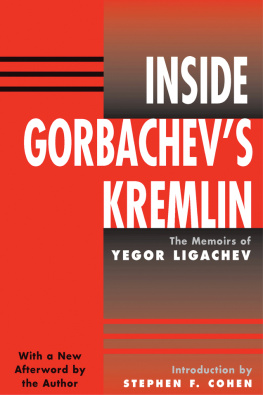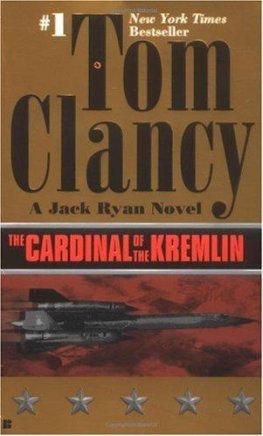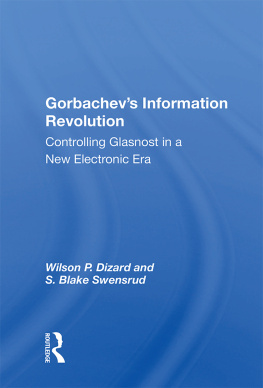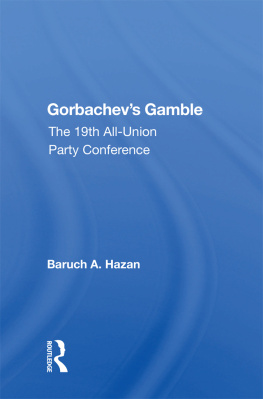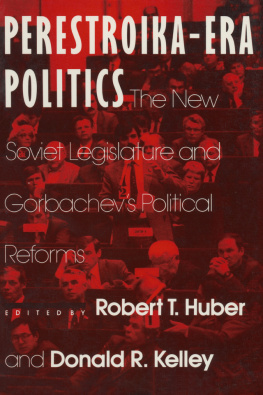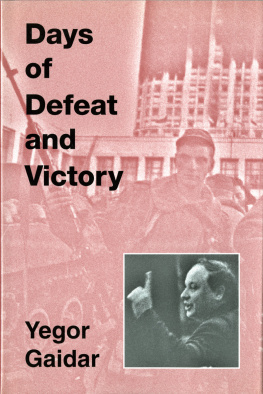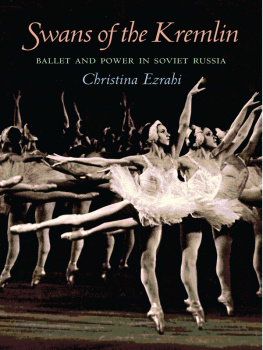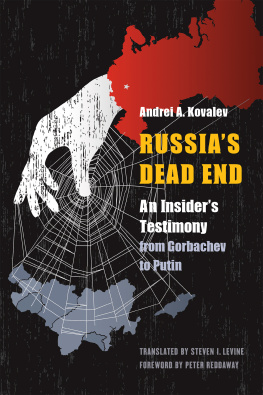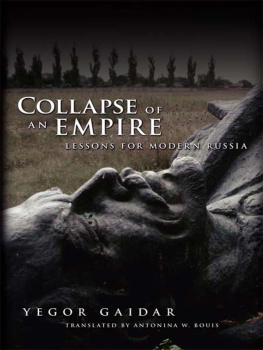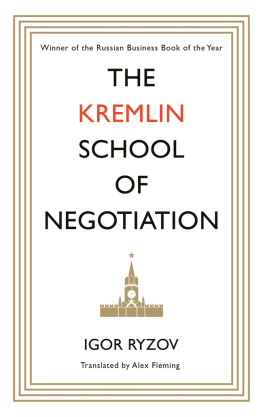Grateful acknowledgment is made to Simon & Schuster, Inc., for permission to reprint from Against the Grain by Boris Yeltsin.
Originally published in Russia as The Gorbachev Enigma by "Interbook" of Novosibirsk.
Augmented new edition published in 1996 by Westview Press
Published 2018 by Routledge
711 Third Avenue, New York, NY 10017, USA
2 Park Square, Milton Park, Abingdon, Oxon OX14 4RN
Routledge is an imprint of the Taylor & Francis Group, an informa business
English translation copyright 1990 by Summit Books. Reprinted by permission.
Copyright 1992 by Siberian Center "Interbook."
English translation copyright 1993 by Random House, Inc.
Introduction copyright 1993 by Stephen F. Cohen.
New material copyright 1996 by Taylor & Francis
All rights reserved. No part of this book may be reprinted or reproduced or utilised in any form or by any electronic, mechanical, or other means, now known or hereafter invented, including photocopying and recording, or in any information storage or retrieval system, without permission in writing from the publishers.
Notice:
Product or corporate names may be trademarks or registered trademarks, and are used only for identification and explanation without intent to infringe.
A CIP catalog record for this book is available from the Library of Congress.
ISBN 13: 978-0-8133-2887-4 (pbk)
Introduction
Ligachev and the Tragedy of Soviet Conservatism
by Stephen F. Cohen
The credibility of memoirs , unlike fiction , depends on the biography and character of the author. Yegor Ligachev has written the first real political memoirs of the fateful Gorbachev years, which may have brought Soviet history to an end and changed world politics forever. Indeed, for general readers and specialists alike, there is for now no comparable insider's account of Soviet politics at the highest levels during any period in Soviet history. But who is Yegor Kuzmich Ligachev?
In the conventional story told by most Western observers since the 1980s, Ligachev was the arch-villain of Soviet politics under Mikhail Gorbachev and his reformsthe chief "enemy of perestroika," a "diehard conservative," even a reactionary "neo-Stalinist."
Empowered by his position as the No. 2 leader, he opposed and obstructed Gorbachev's political and economic changes with the connivance of the Communist Party's apparatus, particularly its powerful provincial bosses throughout the country, and in the name of a dogmatic Marxism-Leninism. Ligachev's intrigues, in this telling, were behind many of the worst deeds in the bitter struggle over perestroika, from protection of corrupt officials and attempts to conceal Stalin's murderous crimes to bloodshed in the streets of Tbilisi in April 1989. In short, Ligachev is said to have represented almost everything bad and unrepentant in the Soviet system that collapsed at die end of 1991.
Some aspects of this standard account have a partial basis in actual events, but much of it continues the long Western tradition of imposing gray stereotypes on complex Soviet realitiesand now post-Soviet ones. Insisting that he was made the "fall guy" for the Gorbachev leadership's failures and the victim of a "witch hunt" by his opponents, LigacheVs memoirs are intended to refute "scandalous" and "blasphemous" accusations that originated in the Soviet media and spread to the West. (Blaming the press for political misfortunes turned out to be something latter-day Soviet politicians shared with their American counterparts.) Readers should judge for themselves whether Ligachev defends himself convincingly. But consider briefly a few complexities, documented in other sources, that do not conform to the stereotypical version of his political role.
Without Ligachev's full backing, Gorbachev probably could not have come to power in March 1985 against the wishes of a prostatus quo majority in the top Party and state councils. In that case, no reform leadership would have been possible. Nor could Gorbachev have initiated liberalizing and even democratizing policies during the next two or three years without Ligachev's collaboration, or at least acquiescence. Take three bitterly disputed examples, two And even though his policy disagreements with Gorbachev were acute by 1989, along with his feeling of having been betrayed, there is no evidence that Ligachev joined any of the intrigues under way in the apparatus to remove Gorbachev as Communist Party leader or the failed tank coup in August 1991 that stripped him of his presidential powers.
Ligachev's personal qualities may be a more subjective question, but they, too, are hard to squeeze into the stereotype. Even political figures loyal to Gorbachev and generally admired in Western accounts characterize Ligachev as being deeply sincere, proudly incorruptible, and habitually straightforward in his political relations. With the rough-hewn and blunt Ligachev, what friends and foes alike saw seems to have been about what they got.
That was my own impression when I first met him in 1990, as he was exiting the political stage, unwillingly and defiantly, at age seventy. A stocky, still strongly built figure of medium height, with thin but impressive white hair atop a ruddy Siberian complexion and riveting blue eyes, Ligachev's emphatic way of speaking and gesturing reminded another American of the "hard-knuckle stage presence of James Cagney in old age," though Spencer Tracy's anachronistic politician in The Last Hurrah also comes to mind. As I got to know him better, Ligachev always seemed old-fashioned in his down-home traditional values, political outlook, and courtly mannersand like another American type: the native of the provincial heartland who after many urban years still felt and looked out of place in the big city. Unknowingly, Ligachev once even uttered the Russian version of our cliche: "I prefer Siberia, where people tell you what they think to your face. In Moscow they stab you in the back."
Old-fashioned did not, however, mean "dogmatic," though the word was attached to Ligachev like a hereditary title in the radical politics of perestroika. In our conversations about history and politics, he always had strong views, but also a willingness, even an eagerness, to consider different opinions. On the few occasions his aides joined us, they seemed more ideologically "dogmatic" than their considerably older boss. In fact, as Ligachev maintains below and as the public record indicates, he "rethought many things" about the political and economic system in which he had lived his entire life and risen to the top. Not so many things as Gorbachev and others rethought, but more than we expect from successful politicians and after middle age.
Even Ligachev's decision to write and publish these unusually detailed and candid memoirs was unorthodox in the Soviet context. Like almost all memoirs of former political leaders everywhere, our own included, they are not, of course, objective, thoroughly trustworthy, or the whole story. Retired powerholders issue such books for self-serving purposes, even leaving aside financial motives: to settle old political scores, embellish their careers, and influence future historians, who therefore need versions from other participants to sort out the truth. But until now, there have been no Soviet leadership memoirs worthy of the namea lack that has made even the best histories of Soviet politics, most of them written in the West, elliptical and speculative. (The most informed kind of speculation, which relied on reading between the lines and seeing through the cracks, was called Kremlinology.)


